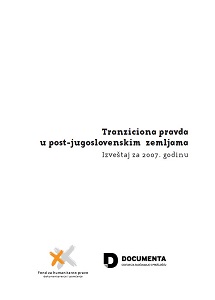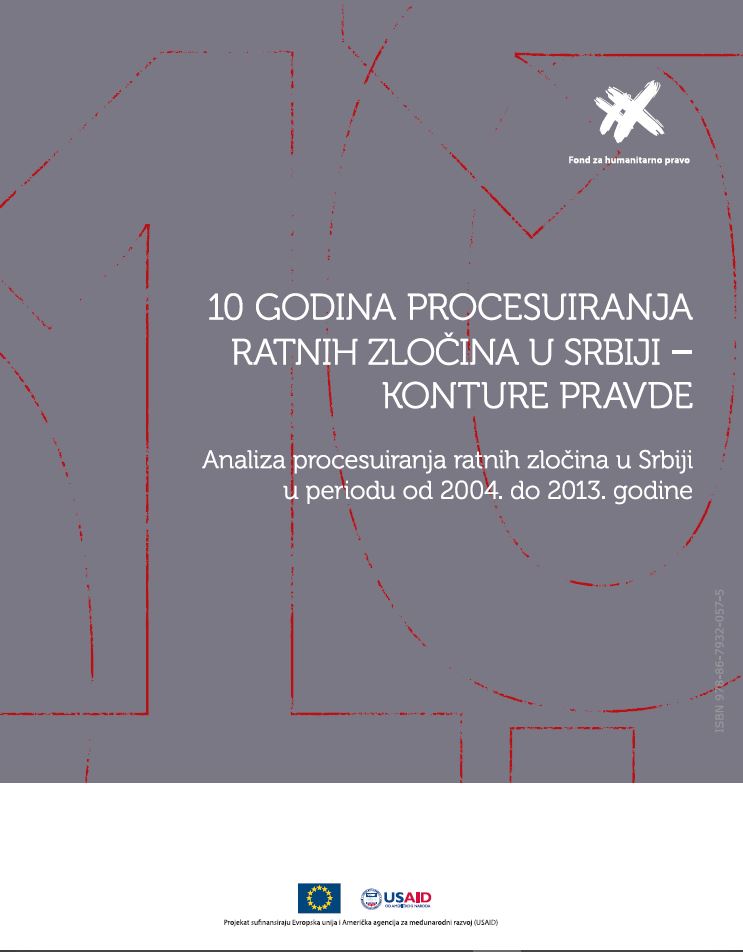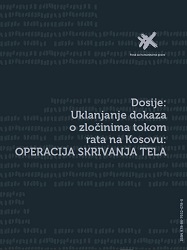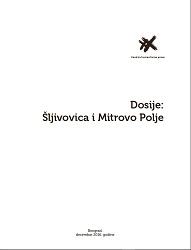
TRANSITIONAL JUSTICE in post-Yugoslav countries. Report for 2007
TRANZICIONA PRAVDA u post-jugoslovenskim zemljama. Izveštaj za 2007. Godinu
Keywords: transitional justice; facing the past; post-Yugoslavia;
This report is the result of systematic monitoring of the establishment of transitional justice in the countries of the former Yugoslavia, conducted by the human rights organizations Humanitarian Law Center (Belgrade) and Documenta (Zagreb). The disintegration of the Yugoslav federation was marked by three high-intensity armed conflicts: in Croatia (1991-95), Bosnia and Herzegovina (1992-95), and Kosovo (1998-99), in which at least 130,000 people lost their lives, millions they were forced to leave their homes, and hundreds of thousands of houses were destroyed. In addition, shorter armed conflicts, with relatively few casualties, occurred in Slovenia (June-July 1991) and Macedonia (January-November 2001). More than 1,300 Serbs, Roma and Albanians, recognized by the Albanian public as Serb collaborators, were killed after armed conflict and the arrival of international forces in Kosovo between June 12, 1999 and the end of 2000. The fate of some 17,000 missing in the region is still unknown. The transition from a state of armed conflict and state repression to a period of peace and the building of democratic institutions requires these societies to decide on mass human rights violations from the recent past. The set of measures taken by the authorities and civil society to address these violations of rights constitutes a complex of transitional justice, the basic elements of which are fact-finding, trials, reparations, and institutional reform.
More...


